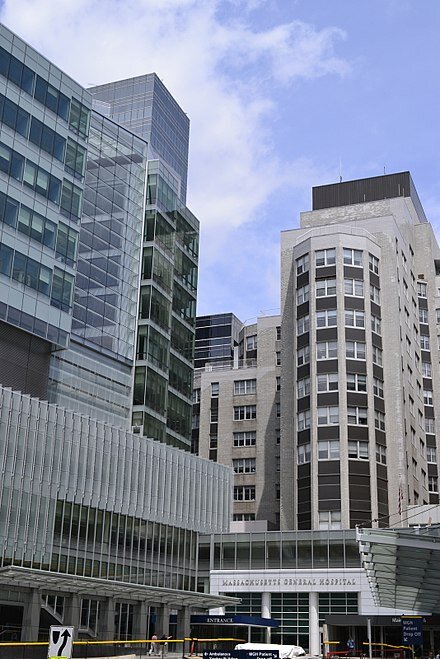
N.E. responds to COVID-19: A testing site for uninsured; policy-change simulator; in-state tuition for out-of staters
The First Congregation Church in Boston’s Hyde Park neighborhood, whose unofficial motto is “A Small Town in the City.’’ A mobile COVID-19 testing site has been opened there for the uninsured.
From The New England Council (newenglandcouncil.com)
BOSTON
As our region and our nation continue to grapple with the Coronavirus Disease (COVID-19) pandemic, The New England Council is using our blog as a platform to highlight some of the incredible work our members have undertaken to respond to the outbreak. Each day, we’ll post a round-up of updates on some of the initiatives underway among Council members throughout the region. We are also sharing these updates via our social media, and encourage our members to share with us any information on their efforts so that we can be sure to include them in these daily roundups.
You can find all the Council’s information and resources related to the crisis in the special COVID-19 section of our Web site. This includes our COVID-19 Virtual Events Calendar, which provides information on upcoming COVID-19 Congressional town halls and webinars presented by NEC members, as well as our newly-released Federal Agency COVID-19 Guidance for Businesses page.
Here is the April 27 roundup
Medical Response
Brigham and Women’s Hospital Opens Mobile Testing Site for Uninsured – In Hyde Park—one of Boston’s emerging virus hotspots—Brigham and Women’s Hospital has opened a mobile testing site to serve those with coronavirus symptoms but without health insurance. Testing at the site will be free of charge, and providers will not ask patients about immigration status. The testing site will also provide masks, boxes of food, and educational materials for those who qualify. Read more from CBS Boston.
Massachusetts General Hospital Researchers Develop Simulator to Predict Policy Change Effects – As states weigh when and how to begin re-opening nonessential businesses, Massachusetts General Hospital (MGH) has built a COVID-19 simulator to predict infections, hospitalizations, and deaths from coronavirus in the state under different plans of action. The model uses virus data to create statistical predictions of the its spread to inform state and local leaders on when it will be safe to ease physical distancing regulations. WBUR has more.
Economic/Business Continuity Response
The University of Maine Offers Tuition Break for Students Affected by Coronavirus – To support students across the country facing educational uncertainty, the University of Maine (UMaine) has launched a new initiative, The Maine Welcome, to allow all students—regardless of state origin—to pay in-state tuition to continue their studies. The program aims to help students as they navigate potential school closures and revenue losses. More from Mainebiz
PwC Makes Digital Fitness App Free Worldwide – To allow workers across sectors and around the world to develop digital skills, PricewaterhouseCoopers (PwC) has made its technological training app free globally. The app offers courses and learning assessments to instruct workers to learn important skills in a workforce increasingly dependent on technology. Cyprus Mail has more.
Community Response
AAA Northeast Uses Service Fleet to Deliver Protective Gear – In partnership with a West Haven, Conn., manufacturer, AAA Northeast is utilizing its fleet of service vehicles, deemed essential, to deliver gowns and other protective equipment made by Thermaxx to first responders and Connecticut state agencies. Read more in WTNH.
Harvard Pilgrim Health Care Enters Partnership to Provide Meals to Families – Harvard Pilgrim Health Care has donated $52,000 to sponsor a month of free meals for families through the Dimock Center. The Dimock Center will provide meals twice a week for families for one month using the donation, but Harvard Pilgrim has committed to additional funding as needed. The Jamaica Plain Gazette has more.
Boeing Transports 1.5 Million Masks to Aid Response – Continuing its relief missions around the world, Boeing delivered 1.5 million face masks from Hong Kong to the United States. The protective equipment will be used by healthcare providers across the country to combat shortages of the equipment necessary to keep healthcare workers safe. Read the release here.
Stay tuned for more updates each day, and follow us on Twitter for more frequent updates on how Council members are contributing to the response to this global health crisis.
Mass. keeps leading the way on medical matters
The main entrance of Massachusetts General Hospital, in Boston
From Robert Whitcomb’s “Digital Diary,’’ in GoLocal24.com
Massachusetts continues to lead the nation on health-care reform. It has long had among the greatest concentrations of medical care and research in the world, in large part because of its universities and associated hospitals. And the health-insurance law nicknamed “Romneycare,’’ after then-Gov. Mitt Romney, who helped lead it into law, morphed into the national Affordable Care Act, aka “Obamacare.’’
And now Gov. Charlie Baker, a former long-time CEO of the insurer Harvard Pilgrim Health Care, has come up with a big bill to further improve care in the commonwealth while trying to limit price increases.
Before I go on, consider the “super users’’ – the 5 percent of patients whose care comprises about half of America’s health-care costs. Some almost seem to live in hospital emergency rooms and many have mental illnesses and/or substance-abuse issues that sent them there.
The governor’s bill would require hospitals and insurers to increase by 30 percent over the next three years their spending on primary care and behavioral health, but without increasing overall spending. Given how many illnesses and injuries are made inevitable by thin primary care and often difficult to obtain mental-and-behavioral-health treatment, that makes sense. The governor says that less than 15 percent of percent of total medical expenses are spent on the combination of primary care and behavioral health. Instead, the big money goes to treat severe and chronic illnesses, many cases of which could have been prevented and/or at least diminished with much more available – and promoted -- primary care and mental-and-behavioral-health coverage. Mr. Baker’s package would also simplify insurance paperwork for mental-and-behavioral-health providers to help expand coverage in this sector, which is still woefully low compared to so-called “physical health,’’ as if the brain isn’t an organ.
American health care is pretty good at rescuing people in extremis but mediocre at preventing what they need to be rescued from.
There are other fine things in the package, including boosting state monitoring of drugs and their prices -- including those drugs bought through the private market and not just Medicaid -- that cost more than $50,000 per person per year – and expanding telemedicine, which cuts expenses in a number of ways.
I hope that other states, and the Feds, try some of these ideas, too. As usual, Massachusetts is a beacon for those seeking to build better health systems.
Healthy Food Fund grants
At Haymarket, in downtown Boston.
— Photo by Daniel Brody
From the New England Council
Harvard Pilgrim Health Care recently announced its 2019 Healthy Food Fund Grant Guidelines and RFP. The grants will be awarded to 25 local nonprofit organizations throughout Connecticut, Maine, Massachusetts and New Hampshire in efforts to support the growth and distribution of free produce to low-income families and older adults.
Evidence of the fund’s widespread impact is reflected in the data: since 2016, 25 organizations supported by Harvard Pilgrim’s Healthy Food Fund increased their distribution by 116 percent to nearly 1.8 million pounds of fresh produce. In the coming year, $625,000 worth of grants will be awarded to volunteer-powered food access programs that focus on people in rural, low-income, and/or communities of color.
Michael Devlin, Director of Grants & Initiatives for Harvard Pilgrim Health Care Foundation, said, “By mobilizing the energy of local and corporate volunteers to grow, glean and distribute healthy produce for low-income families across our region, we want to create a movement of ‘neighbors feeding neighbors’ and expand the number of citizens advocating for fresh, local, healthy food equity.”



